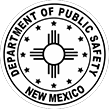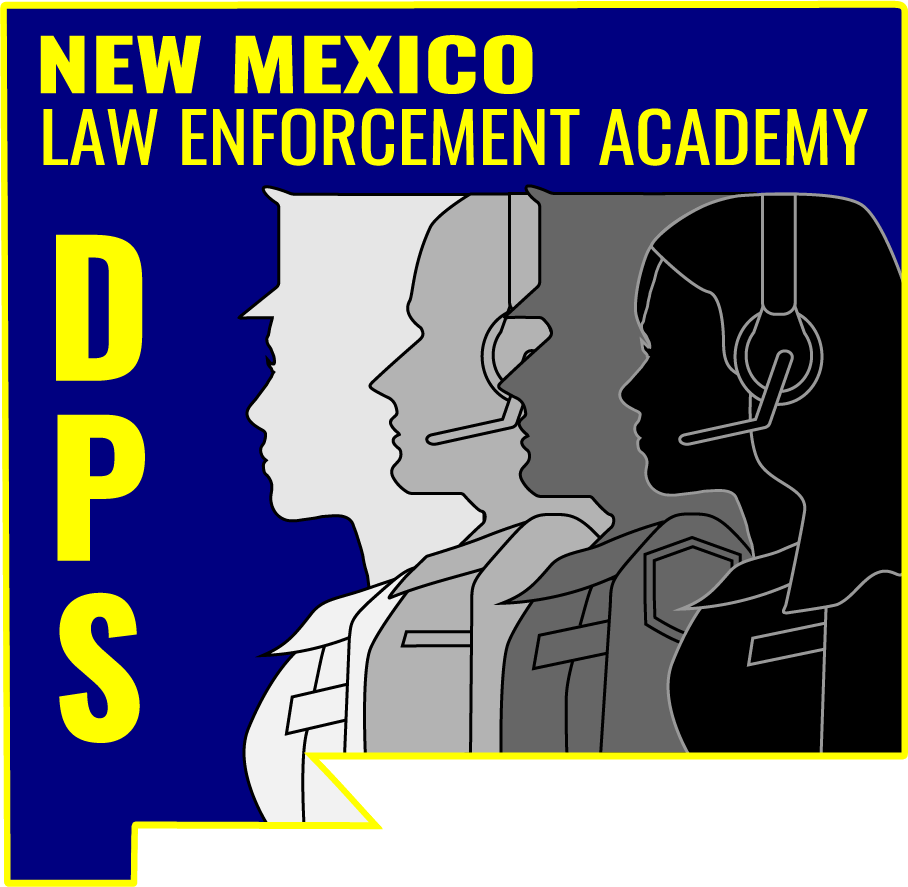Misconduct Reporting
- NMLEA Home
- Law Enforcement Certification Board
- Misconduct Reporting
- LECB
- NMLEA
- NMLEA Events Calendar
- Director's Page
- Basic Police Officer Training (BPOT)
- Certification By Waiver (CBW)
- Public Safety Telecommunicator
- In-Service Training
- Satellite Academies
- Albuquerque Police Department (APD) Training Academy
- Bernalillo County Sheriffs Office (BCSO) Training Academy
- Central New Mexico (CNM) Law Enforcement Academy
- Dona Ana County Sherriff's Office (DASO) Training Academy
- Las Cruces Police Department (LCPD) Training Academy
- New Mexico State Police (NMSP) Training Academy
- San Juan Criminal Justice Authority
- Southeastern New Mexico Law Enforcement
- Western NM University Police Academy
- Forms & Documents
- NM Law Enforcement Standards & Training Council
- NM Law Enforcement Officer Memorial
- NMSP
- Law Enforcement Support Services
- Budget Bureau
- Financial Management Bureau
- Law Enforcement Records Bureau
- Grants Management Bureau
- Programs
- Coronavirus Emergency Supplemental Funding (CESF)
- Community Oriented Policing Services Anti-Methamphetamine Program
- DNA Capacity Enhancement For Backlog Reduction (CEBR) Program
- Edward Byrne Justice Assistance Grant Program
- High Intensity Drug Trafficking Area Program
- Law Enforcement Mental Health and Wellness Act Program
- Motor Carrier Safety Assistance Program (MCSAP)
- NM Sexual Assault Kit Initiative Program
- Paul Coverdell Science Improvement Program
- Post-Conviction Testing of DNA Evidence to Exonerate the Innocent Program
- Prison Rape Elimination Act Program
- Project Safe Neighborhood (PSN)
- Residential Substance Abuse Treatment Program
- Support for Adam Walsh Act Implementation Grant Program
- Traffic Safety
- Victim of Crime Act - Victim Advocacy Program
- Waste Isolation Pilot Plant (WIPP)
- Funding Opportunities
- Grant Guidance and Resources
- Careers
- Programs
- Forensic Laboratory Bureau
- Information Technology
- Equal Employment Opportunity Bureau
- What’s Happening
- Careers
Misconduct Reporting
The Law Enforcement Training Act (NMSA 29-7-1 through 29-7-16), grants the Board with the powers and duties to refuse, suspend or revoke certification of a police officer or telecommunicator’s for just cause as provided as under the Law Enforcement Training Act and Board Rules (10.29.1 NMAC). As provided for in section 10.29.1.11 NMAC, a “law enforcement agency employing a police officer or telecommunicator who has committed, or reasonably appears to have committed, any act in violation of these rules shall report such conduct to the director within 90 days after the agency initiates an internal affairs review or is otherwise made aware of the alleged misconduct”. Additionally, a “law enforcement agency shall immediately inform the director if an officer or telecommunicator employed by the agency is arrested or indicted on felony charges”. Misconduct violations that are found to be agency policy violations and do not relate to Board grounds for certification action are not required to be reported. Download the Misconduct Report using the button below.
See 10.29.1.11 NMAC for complete administrative rules related to grounds for denial, revocation, or suspension of police officer or telecommunicator certification and additional agency misconduct reporting requirements.
|
10.29.1.11 GROUNDS FOR DENIAL, REVOCATION OR SUSPENSION OF POLICE OFFICER OR TELECOMMUNICATOR CERTIFICATION; REPORTING REQUIREMENTS:
(1) The director upon being notified that a certified police officer or telecommunicator has been arrested or indicted on any felony charge(s) shall immediately notify the individual of the intent to suspend the certification. The procedures set forth in 10.29.1.12 NMAC shall not apply to the immediate suspension. Notice of the immediate suspension shall be served on the officer or telecommunicator. Upon service of the notice, the individual shall have 15 days to request to be heard at the next meeting of the board. At the meeting, the individual may present evidence, witnesses and argument as to why their certification should not be suspended. The board may deliberate and shall issue a decision on the suspension at the meeting. (2) The director upon being notified that a police officer or telecommunicator has been convicted on any felony charge(s) shall initiate the disciplinary process pursuant to 10.29.1.12 NMAC.
(1) subsequent conviction, entry of plea of guilty or entry of plea of nolo contendere to any felony charge; (2) subsequent conviction, entry of plea of guilty or entry of plea of nolo contendere to any violation of any federal or state law or local ordinance relating to aggravated assault, theft, driving while intoxicated, controlled substances, or other crime involving moral turpitude; (3) making false statements or giving any false information to the academy in connection with an application for admission/certification; (4) committing acts which indicate a lack of good moral character, or which constitute dishonesty or fraud, and which adversely affects an officers’ ability to exercise the duties of a police officer; (5) committing acts of violence or brutality which indicate that the officer has abused the authority granted to him or her as a commissioned police officer in the state of New Mexico; or (6) having committed acts which would be grounds for denial of application for admission under 10.29.1.10 NMAC.
(1) subsequent conviction, entry of plea of guilty or entry of plea of nolo contendere to any felony charge; (2) subsequent conviction, entry of plea of guilty or entry of plea of nolo contendere to any violation of any federal or state law or local ordinance relating to aggravated assault, theft, driving while intoxicated, controlled substances or other crime involving moral turpitude; (3) making false statements or giving any false information to the academy in connection with an application for admission/certification; (4) committing acts which indicate a lack of good moral character, or which constitute dishonesty or fraud, and which adversely affects an telecommunicator’s ability to exercise the duties of a certified telecommunicator; (5) committing acts which indicate that the telecommunicator has abused the authority granted to a certified telecommunicator in the state of New Mexico; or (6) having committed acts which would be grounds for denial of application for admission under 10.29.1.10 NMAC.
|
[10.29.1.11 NMAC – Rp, 10.29.1.11 NMAC, 11/15/16]

